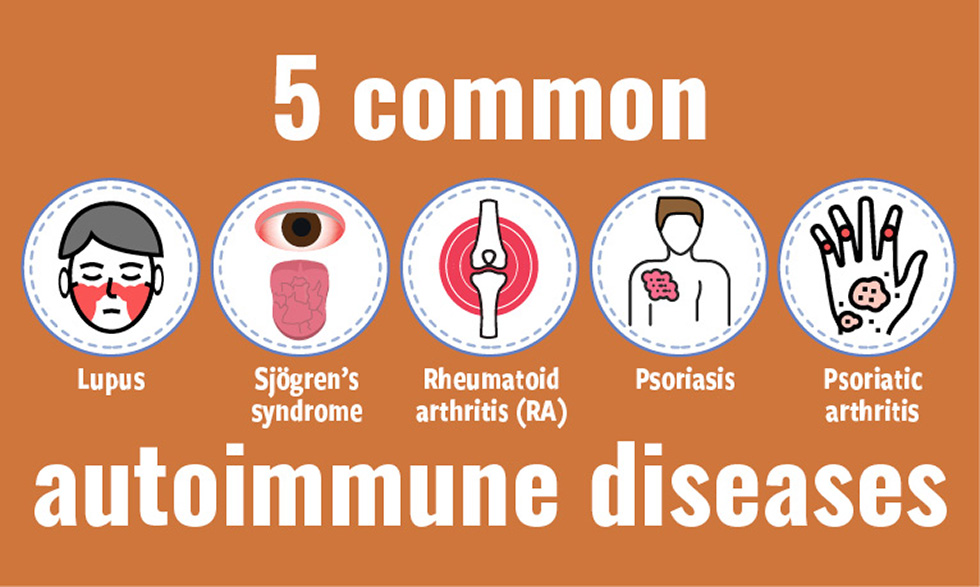Autoimmune diseases occur when the body’s immune system mistakenly attacks its own healthy cells and tissues. This can lead to a wide range of symptoms and conditions.
Common Autoimmune Diseases
- Rheumatoid arthritis: A chronic inflammatory disease that affects the joints, causing pain, swelling, and stiffness.
- Lupus: A systemic autoimmune disease that can affect multiple organs and tissues, causing symptoms like fatigue, joint pain, and skin rashes.
- Multiple sclerosis (MS): A chronic autoimmune disease that damages the myelin sheath surrounding nerve fibers in the brain and spinal cord, leading to symptoms like weakness, numbness, and vision problems.
- Type 1 diabetes: An autoimmune disease that destroys the insulin-producing cells in the pancreas, leading to high blood sugar levels.
- Celiac disease: An autoimmune disease triggered by the consumption of gluten, a protein found in wheat, barley, and rye.
- Psoriasis: A chronic autoimmune skin condition characterized by patches of thick, red, scaly skin.
- Hashimoto’s thyroiditis: An autoimmune disease that affects the thyroid gland, leading to hypothyroidism (underactive thyroid).
Causes and Risk Factors
The exact causes of autoimmune diseases are not fully understood, but they are believed to be a combination of genetic and environmental factors. Some risk factors include:
- Genetics: Having a family history of autoimmune diseases can increase your risk.
- Environmental factors: Exposure to certain viruses, bacteria, or toxins may trigger an autoimmune response in susceptible individuals.
- Hormones: Hormonal changes, such as those that occur during pregnancy or menopause, can sometimes trigger autoimmune diseases.
Symptoms and Diagnosis
The symptoms of autoimmune diseases can vary widely depending on the specific condition. Diagnosis often involves a combination of medical history, physical examination, and laboratory tests.
Treatment
There is no cure for most autoimmune diseases, but treatments can help manage symptoms and improve quality of life. These may include:
- Medications: Medications such as corticosteroids, immunosuppressants, and disease-modifying antirheumatic drugs (DMARDs) can help reduce inflammation and suppress the immune system.
- Lifestyle changes: Healthy lifestyle habits, such as regular exercise, a balanced diet, and stress management, can help manage symptoms and improve overall health.
- Surgery: In some cases, surgery may be necessary to treat complications of autoimmune diseases.
While autoimmune diseases can be challenging to live with, advancements in research and treatment options are providing hope for those affected.
